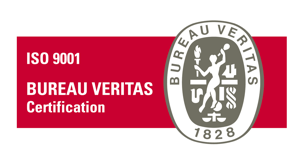Article

Video Games and patents in Europe: a brief overview of the current situatio
Written by Jean-François ADAM
Video Games and patents in Europe: a brief overview of the current situation
The revenues generated by the video game industry each year amount to several tens of billions of dollars, have been steadily increasing over the past years, and are expected to keep on increasing in the foreseeable future.
Although patents are not associated with video games in the mind of the general public, patents do offer ways of obtaining a form of intellectual property protection for the latter, in particular in Europe.
Indeed, Article 52 EPC namely cites game rules in general as not patentable as such. However, a number of patents has been granted by the European Patent Office for video games-related inventions in the wake of some very noticeable decisions made by the Boards of Appeal of the EPO.
In a decision T 928/03, the Board of Appeal deemed that displaying a portion of a guide mark which symbolizes an animated character, here a football player which possesses the ball, on a side of the screen so as to indicate the direction in which a ball is to be passed by this character was not only a feature of a claim which could very well convey the required novelty to the subject-matter of the latter, but that it was also capable of conveying the required inventive step.
In a following famous decision T 12/08, the Board of Appeal also came to a positive conclusion regarding the inventive step of a main claim targeting a gaming machine which includes a program designed for varying the probability for a character to appear in-game based on time information provided by clock means of the gaming device.
On the contrary, T 1543/06 ended with the Board of Appeal considering that the gaming device of the main claim was merely designed for the implementation of specific game rules, the corresponding features therefore failing to elevate the invention above the prior art in terms of inventive step.
In all these decisions, and as can be expected for the foreseeable future, the reasoning of the EPO when evaluating video games-related applications relies on the doctrine established by T 641/00, whereby for assessing the inventive step, solely the features which are not excluded from patentability in particular in the sense of Article 52 EPC can contribute to the required inventive step of the subject-matter of the claims. In the present case, this notably applies to game rules, although the other exclusions listed therein must be taken into account as well.
These elements combine to draw a picture in which European patents can indubitably be obtained for video games, but the claims must target objects which reach beyond mere game rules. Although this should not necessarily be considered the only topic worthy of a patent, the Boards of Appeal have clearly proven inclined to consider favorably specific technical implementations of game rules, as in T 928/03 and T 12/08.
Let it be said that although the Boards of Appeal have set a rather clear picture regarding patenting video games, difficulties are likely to be expected during Examination. Indeed, it is not uncommon for Examining Divisions to be imperfectly aligned with the Boards of Appeal, in particular on subtle and untypical subjects such as video games.
Persistence and careful justifications in light of decisions made by the Boards of Appeal are therefore key.




